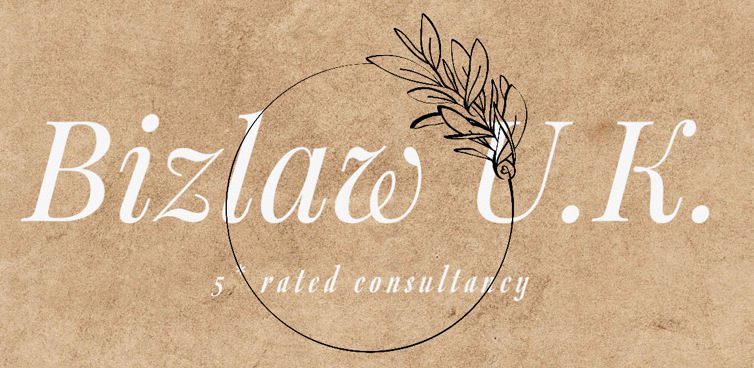|
Getting your Trinity Audio player ready...
|
In the last decade, social enterprise has boomed, with a significant increase in the number of social enterprise start-ups. According to recent government figures, there are more than 70,000 social enterprises in the UK, employing over two million people and contributing over £24 billion to the UK economy. Well-known examples of thriving social enterprises include: The Big Issue, Divine Chocolate, the Eden Project, Cafedirect and Jamie Oliver’s restaurant Fifteen.
What is a Social Enterprise?
A social enterprise is a business which has a primary social or environmental objective and reinvests a substantial percentage of the profits it makes into furthering that objective rather than distributing them to shareholders or owners.
It has a clear sense of its ‘social mission’ – in other words, what difference it is trying to make, who it aims to help, and how it plans to do it. It generates most or all of its income through selling goods or services rather than through grants and donations.
If you want to set up a business that has social, charitable, or community-based objectives, you can set up as a:
- Limited Company
- Charity, or a Charitable Incorporated Organisation (CIO)
- Co-Operative
- Community Interest Company (CIC)
- Sole Trader or Business Partnership
- Limited Company
A limited company is a company ‘limited by shares’ or ‘limited by guarantee’.
- a. Limited by shares
Limited by shares companies are usually businesses that make a profit. This means the company:
- is legally separate from the people who run it
- has separate finances from your personal ones
- has shares and shareholders
- can keep any profits it makes after paying tax
- b. Limited by guarantee
Limited by guarantee companies are usually ‘not for profit’. This means the company:
- is legally separate from the people who run it
- has separate finances from your personal ones
- has guarantors and a ‘guaranteed amount’
- invests profits it makes back into the company
2. Charity or a Charitable Incorporated Organization (CIO)
There are 6 steps to setting up a charity.
- Find trustees for your charity – you usually need at least 3.
- Make sure the charity has ‘charitable purposes for the public benefit’.
- Choose a name for your charity.
- Choose a structure for your charity.
- Create a ‘governing document’.
- Register as a charity if your annual income is over £5,000 or if you set up a charitable incorporated organization (CIO).
A CIO is an incorporated structure designed for charities. You create a CIO by registering with the Charity Commission. You do not need to register with Companies House. Trustees have limited or no liability for CIO debts or liabilities.
3. Co-Operative
A co-op is a business or organization that is owned and controlled by its members, to meet their shared needs. The members can be its customers, employees, residents, or suppliers, who have a say in how the co-op is run. Members choose what to do with profits, whether distributing among members, reinvesting in the business, or giving back to the community.
When you set up a Co-Op you need to have:
- A good idea of the “vision” of the co-operative – why it exists, what it is going to do and where it intends to be in 1 and 3 years.
- A strong sense of what the business or trade of the co-operative will look like, what it’s product or service will be and who its customers or users will be.
- An elevator pitch – you need to be able to explain your co-operative business in the time it takes to share a lift?
- Clarity on who the members of the co-operative are.
- An idea of who is doing something similar and who can help you.
- A clear idea on where to go next for specialist business support
Registration costs £150* which includes VAT and the statutory fee. This fee is subsidized thanks to The Co‑operative Bank, as part of The Hive programmed for co-ops. If you use this service, you will also receive one year’s membership to Co‑operatives UK.
4. Community Interest Company (CIC)
A CIC is a special type of limited company which exists to benefit the community rather than private shareholders. To set up a CIC, you will need:
- a ‘community interest statement’, explaining what your business plans to do.
- an ‘asset lock’- a legal promise stating that the company’s assets will only be used for its social objectives and setting limits to the money it can pay to shareholders.
- a constitution – you can use the CIC regulator’s model constitutions.
- to get your company approved by the community interest company regulator – your application will automatically be sent to them.
5. Sole Trader or Business Partnership
If you are a sole trader, you run your own business as an individual and are self-employed. You can keep all your business’s profits after you have paid tax on them. You are personally responsible for any losses your business makes. You must also follow certain rules on running and naming your business.
You need to set up as a sole trader if any of the following apply:
- you earned more than £1,000 from self-employment between 6 April 2020 and 5 April 2021.
- you need to prove you are self-employed, for example to claim Tax-Free Childcare.
- you want to make voluntary Class 2 National Insurance payments to help you qualify for benefits.
You will need to:
- keep records of your business’s sales and expenses.
- send a Self-Assessment tax return every year.
- pay Income Tax on your profits and Class 2 and Class 4 National Insurance – use HMRC’s calculator to help you budget for this.
- You will need to apply for a National Insurance number if you’re moving to the UK to set up a business.
In a partnership, you, and your partner (or partners) personally share responsibility for your business. This includes any losses your business makes, bills for things you buy for your business, like stock or equipment. Partners share the business’s profits, and each partner pays tax on their share. A partner does not have to be an actual person. For example, a limited company counts as a ‘legal person’ and can also be a partner.
When you set up a business partnership you need to:
- Choose a name
- Choose a ‘nominated partner’
- Register with HM Revenue and Customs (HMRC)
- The ‘nominated partner’ is responsible for managing the partnership’s tax returns and keeping business records.
For expert legal advice for businesses, contact help@bizlawuk.co.uk or WhatsApp us on 07583452230 and we can connect you to our Business Legal Advisor. Visit www.bizlawuk.co.uk to find out more about how we can help you with our other services. If you find this information useful, please follow our social media platforms, like and share




